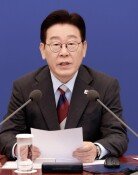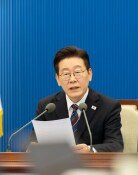U.S. historians issue joint statement against Japans historical revisionism
U.S. historians issue joint statement against Japans historical revisionism
Posted February. 07, 2015 07:23,

When Japanese Prime Minister Shinzo Abe makes a visit to America this year, letting him address the Congress saying anything at his will would be dangerous. President Barack Obama will have to make a serious conversation with him over historical facts.
Alexis Dudden (see photo), a professor at the University of Connecticut who led a group of 19 American historians to issue a joint statement criticizing the Abe administrations attempt to bias the historical description on U.S. textbooks, talked over the telephone interview on Thursday. The followings are interview excerpts.
- What has motivated such a joint statement?
We were informed in November 2014 that the Ministry of Foreign Affairs of Japan was planning to send some of its diplomats to the U.S. publisher McGraw-Hill and make a request to alter the description of sexual slavery issues in some textbooks. To deliberate the issue, several history scholars organized a discussion panel at an annual meeting of American Historical Association (AHA). We believed that Japan was threatening academic freedom and wished to clearly express our protest against Japans wrongdoing.
- What kind of resolution was made back then?
It is understandable when a government tries to influence on the historical description of its country, but it goes against historical practice if the nation censor the historical contents of textbooks. It was particularly unusual when the government of Japan demanded to get rid of several paragraphs from textbooks. For that reason, we have made a joint statement to express our special interest and solidarity on this issue.
- How do you expect Japan to respond?
Japanese leadership and advisors would not be happy about the statement. They would pretend not to know this if they are smart enough. I expect, however, that they would stand against the statement to push forward with their goal.
- What if Japan doesnt accept the statement?
The statement co-signed by 19 historians is not the voice of just 19 historians. Since it is the voice of the entire history scholars, numerous victims of Japans horrible act (so-called comfort women forced by Japan to work at brothels during World War II) would step forward to have their voice heard. If the Abe administration argues that the statement is not based on accurate historical facts, it will only prove that Japan is still ignorant of historical values. Japans openness would fall under suspicion and its government would face harsh criticism. Historians around the world will continue communicating through the Internet and maintain their strong support for Herbert Ziegler, professor at University of Hawaii who wrote the textbook.
- What should President Obama do?
When President Barack Obama meets with Japanese Prime Minister Shinzo Abe in Washington, they have a chance to talk about the history. Obama could put across ideas about what Japan and its prime minister could do as a leading nation in Asia and the world.
- Would Japan keep pursuing historical revisionism?
Abe and his followers have long insisted that historical facts would tarnish the honor of their nation and instill historical view of self-punishment for its younger generations. To create and maintain the image of beautiful country, they will keep making efforts in replacing historical facts with memory that they prefer.
- Why is it (Japans historical revisionism) giving serious cause for concern?
We dont want to witness that Japan, an open society, regresses to the past. The deepest concern is that this illusion of historical revisionism would give evil influence over Japan and its younger generations. Turning a deaf ear to the past would only bring damaging effect on the future.





![아침 공복 따뜻한 물 한 잔, 정말 살 빠지고 해독될까?[건강팩트체크]](https://dimg.donga.com/c/138/175/90/1/wps/NEWS/IMAGE/2026/03/05/133467930.3.jpg)

